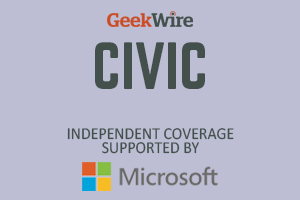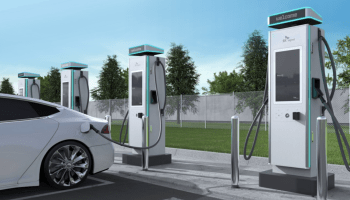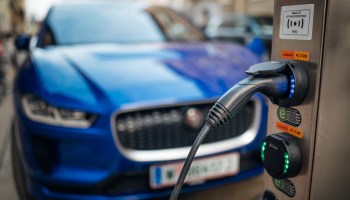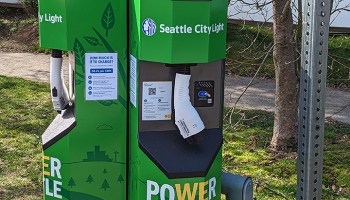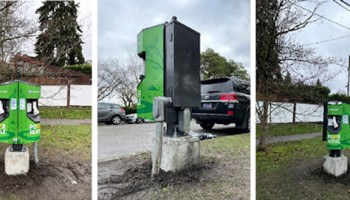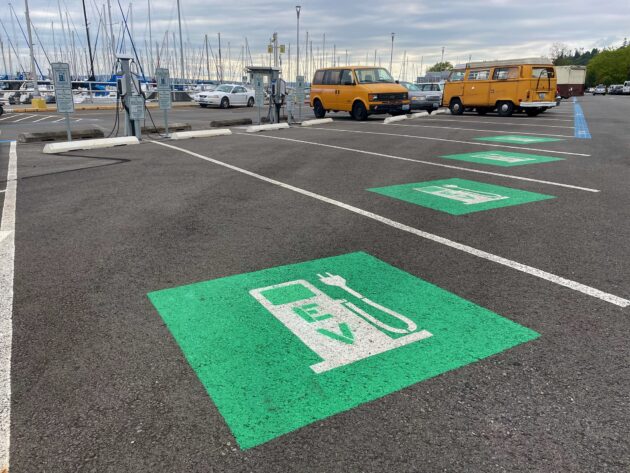
Seattle could get a boost in electric vehicle charging if new legislation is approved Tuesday by the City Council.
The bill, CB 120637, would give Seattle City Light the ability to lease private property to install and operate its own public EV chargers, and allow private companies to lease City Light property for EV charging infrastructure. Update: The City Council passed the bill unanimously Tuesday afternoon.
City Light estimates that it will install at least 10 to 20 projects over the next two years under the new law, with more to come. The stations would be installed in locations such as grocery stores or other businesses.
Leasing its own property will accelerate the city’s EV charging network, according to a presentation attached to the bill.
The legislation, sponsored by councilmember Sara Nelson, helps “address a growing and pressing need for public charging,” said Jenn Strang, spokesperson for the City of Seattle.
More than 75,000 EVs currently operate in Seattle’s King County, up 25% since March.
“Without the authority to lease property, some sites that would be ideal for EV charging may not be developed for this purpose and the City may not be prepared to meet future demand, particularly in overburdened communities and/or locations overlooked by the private sector,” according to a summary note for the legislation.
The city’s Climate Action Plan from 2013 set a goal of reducing passenger vehicle emissions to 83% of 2008 levels by 2030 and to zero-emission by 2050.
“For the city to meet its climate goals, we really need these public-private partnerships to scale,” said Angela Song, transportation electrification portfolio manager for City Light, said at a council committee meeting last week.
Song said the city has about 1,100 charging ports and needs 8,000 ports by 2030, according to a study from City Light.
Revenue from leased City Light property is expected to be nominal, according to the presentation.
Scott Case, CEO of Seattle-based startup Recurrent, said the new law will help diversify the types of providers and charging sites.
“Access to public EV charging remains a barrier to adoption, especially for our neighbors who don’t have their own garage or driveway,” said Case, whose company provides data on EV batteries.
Last year, Seattle Mayor Bruce Harrell signed an executive order directing city departments to reduce or eliminate emissions within the transportation sector.
Earlier this year City Light picked 31 new sites for “level 2” EV charging stations on wood poles, steel poles, and standalone pedestals.
City Light installed its first fast-charging stations in 2018.
“Liberalizing the rules around leasing privately owned and City Light-owned property for EV charging will spur the construction of more charging in more places, improve charging availability for EV drivers, and help City Light take market share from the gasoline industry,” said Matthew Metz, co-executive director of Coltura, a Seattle-based nonprofit in support of gasoline reduction.
By 2030, two-thirds of new car sales must be zero-emission in Washington state; by 2035, all new vehicles sold in the state must be zero-emission.

